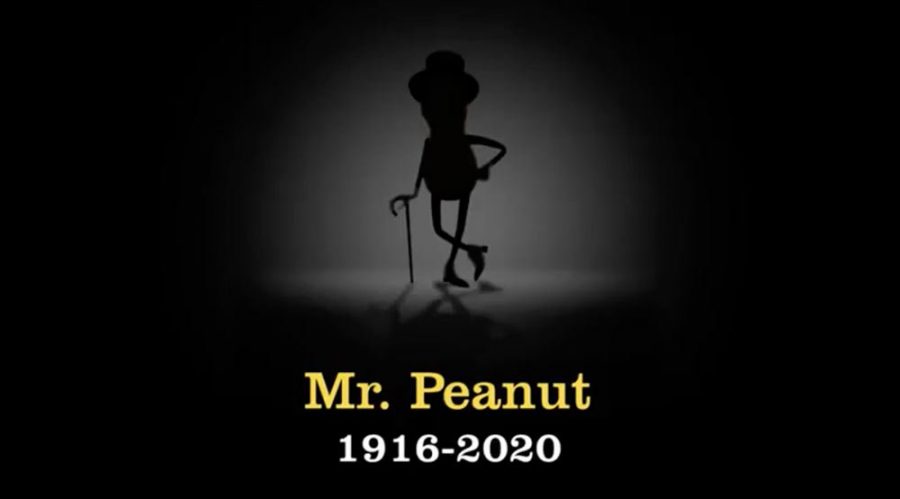In case you haven’t heard, The Estate of Mr. Peanut recently took to Twitter to announce the untimely demise of their beloved mascot, Mr. Peanut. The death of this iconic legume leaves behind a flurry of questions like “Why did Planters kill off their trademark character?”, “Is Baby Nut the same?” and “Is Mr. Peanut really a WWII vet?”. I’d love to address these questions, however, a more important one lies unanswered in the wake of Mr. Peanut’s tragic death and Planters’ aim to capitalize on it: What exactly is the company trying to achieve? To answer this, we must first acknowledge that this occurrence is not the first of its kind.
I’ll give credit where it’s due: Planters took a leap where most brands don’t and landed with grace. However, this stunt is only a seed in the forest of Twitter marketing stunts and it’s going to take a lot more to keep this campaign growing. One brand that has similarly benefitted from their social media presence is Wendy’s. Wendy’s Twitter account has seen a massive boost in engagement over the last few months. Despite some minor controversies – like when it roasted McDonalds or posted an antisemitic symbol – several of their tweets have gone viral. Since August, the infamous twitter account has grown from 3.2 million followers to 3.5 million whereas a much larger chain like McDonald’s has only gained 40,000 followers, from 3.56 million to 3.6 million. Wendy’s annual revenue over the last two years has also seen an improvement, increasing from $1.2 billion in September 2017 to $1.6 billion in September 2019. McDonald’s, although raking in several billions more than Wendy’s, has decreased from an annual revenue of $23.5 billion to $20.9 billion. Wendy’s ability to acclimate to the rapidly changing landscape of social media is reflected in their follower count and their sales numbers while brands like McDonald’s continue to blend in, making it harder to stand out in the homogenous fast-food industry.
Some may argue that these numbers are arbitrary and that McDonald’s will always be more successful, but at some point, we must question the status quo. If you were blindfolded and asked to taste a burger from McDonald’s, Wendy’s, Burger King and Five Guys, you would almost certainly have trouble distinguishing Wendy’s from Five Guys and Five Guys from McDonald’s. McDonald’s was early to capitalize on the burger and fries market but today each restaurant practically sells the same thing. Fast-food joints need a way to set themselves apart and a funny Twitter account might just be the selling point.
Humor is attractive. In fact, studies show that a sense of humor “reveals intelligence, creativity and other good genes.” While brand Twitter accounts are not the same as love interests, you should at least like the brand you’re giving your money to. Beyond this, the rising group of Gen Z and Millennial youth define what’s popular on social media and humor is a surefire way to make or break your brand. LMAO!!! Pinot Grigio learned this the hard way after releasing a series of wine blends targeted at Millennials with reactive acronyms like LOL and OMG. It’s safe to say you can no longer purchase OMG Chardonnay and CYA!!! Shiraz at liquor stores. For brands like Wendy’s and Planters, satire could serve as their knight in shining armor, providing just another outlet to reach new audiences and potential customers.
Since you’ve been patiently waiting this entire time, yes, Mr. Peanut was a WWII veteran. Originally Planters killed off their iconic snack with the intention of airing his funeral during the Super Bowl however following the devastating helicopter crash involving basketball legend Kobe Bryant and eight other people, the company decided it was best to revise the finale to their weird but captivating peanut saga. In turn, Planters aired a version of the funeral in which Mr. Peanut is reborn from The Kool Aid Man’s tears, taking on the persona of Baby Nut. Although their campaign didn’t go as planned, the brand garnered enough attention to make all the fuss worth it. It’s no doubt we’ll remember Planters products for their low cost and high quality but what will stick with us more than honey roasted pecans is that one time Mr. Peanut died for an ad campaign and people got talking.
Max Schwartz is a Collegian columnist and can be reached at [email protected].





















joeyd • Feb 5, 2020 at 6:16 am
desecrate*
joeyd • Feb 5, 2020 at 6:08 am
The bigotry and hatred towards Mr.Peanut in this article is astounding. How dare the author try to devalue Mr.Peanut’s death as if it is some marketing strategy and further have the audacity to discrete this great American anthropomorphized peanut!
Mr.Peanut 1916-2020 RIPeanut